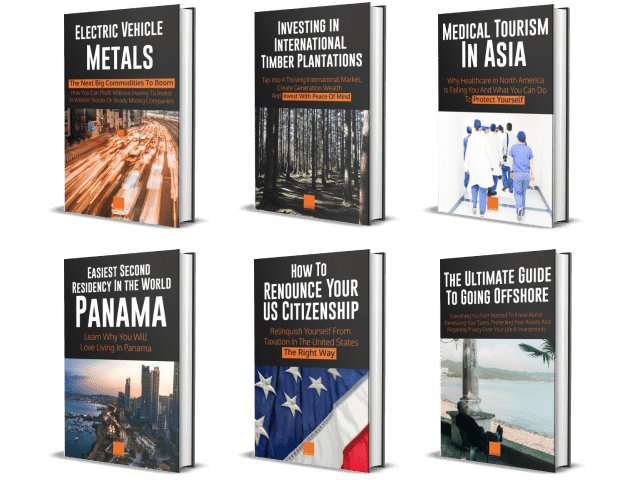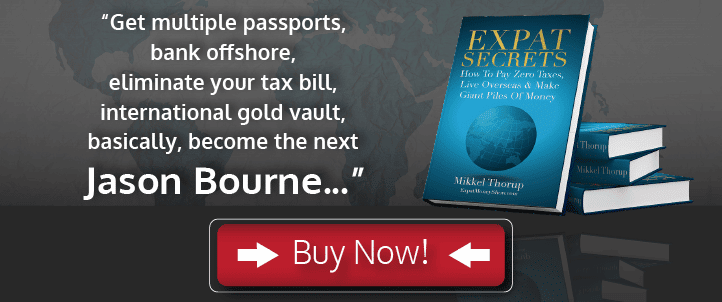Donald Trump’s Tax Cuts and Jobs Act of 2017 was one of the largest tax overhauls ever seen in the US economy. In a single stroke, Trump reduced corporate taxes and brought down individual tax brackets as well. While everyone was really glad he did it, it seems like he dropped the ball when he went through with the trade war with the Chinese.
These tax changes were supposed to induce inflationary pressures in the economy by giving the people more money to spend. With increasing demand and greater productivity of the American economy, you could have expected the US to come out of its economic stagnancy. But no, Trump had to raise tariffs on Chinese goods, which account for nearly $539.5 billion worth of imports coming into the economy every year. Trump has also recently threatened tariffs against Mexico—another source of cheap goods for the American consumer.
Add to this deflationary dynamic the fact that the government intends to collect an estimated $1.8 trillion in tax revenues in 2019—your trust funds really aren’t worth much. Now with greater global economic uncertainty, you should move your trust funds to offshore locations. That way you’ll have to pay lower taxes, have greater investment freedom and greater financial flexibility to help you circumvent untoward economic circumstances.
This article will analyze the problems with holding your trust funds in the United States in light of the economic certainty in the country. It will also speak of the exorbitant tax rates and how these hold back your financial growth.
Global Macroeconomics And US Stock Exchange In 2019
There’s a very important reason why I specifically mentioned the Tax Cuts and Jobs Act of 2017 together with the trade war. The thing is, while Trump reduced the tax burdens on corporations and individuals alike he took all of that away when he got into the trade war. While he reduced the corporate tax by around 14%, the imposition of 25% tariffs basically raised the costs of production by 11%. Any individual tax payer was also paying more money after the tax cut than they were before. There really was no point to the tax cuts at all—they only reduced the purchasing power of the consumer.
There was a dual effect of the trade war, not only could consumers buy less—even producers had to reduce their supply because they can’t sustain post-tariff cost levels. According to reports, the largest part of the supply chain was the import of intermediary goods that form a crucial part of the production process. Nearly 15% of all the demand for Chinese manufactured intermediary goods was affected and the US transportation sector had to pay substantially higher prices for imports that previously cost $10 billion. This production disruption and disruption in the logistics sector has effectively crippled the US’s domestic supply chain.
Before the US and China reached their phase one trade agreement, stock markets in the states were continuously plummeting. Back in August, when the trade tensions were at an all time high, the market actually fell 760 points within a single day. Even with this agreement in place, the markets weren’t optimistic and rose by only 3 points. Given these considerations, this isn’t the time for anyone to invest in the stock markets—particularly through their trust funds, which are significant determinants of their post-retirement wealth and the wealth they pass on.
Effect On Bond Markets
Of course, now that the consumer purchasing power is at an all-time low, the government had to cut interest rates to make sure that people continued spending. In many ways, this was also a way to divert public funds into an increasingly less attractive equities market. The people who’ve moved to the equities markets might very well have signed their financial death warrants but no one’s making money off of the bonds market either.
The US bond’s market has gone through quite a wild ride throughout 2019, in a sequence that’s termed as the “bond phenomenon of 2019”. The market was insanely erratic throughout the year and this trend will continue over the next year until things stabilize.
An Impending Recession
Considering the economically destructive state of events in the world right now, a lot of people are saying that we’re about to hit one of the worst economic recession in human history. Hong Kong is literally bleeding money, Brexit is nowhere near finalized and then this trade war is eroding at both China and the United States’ economic stability. Each of these regions is a financial foundation for the global economy. Assuming that these people can’t figure out their problems as soon as possible, we’re definitely looking at a global recession where everyone will lose a fair bit of money.
The Problem With Not Having A Trust Fund
Not having an offshore trust fund is going to be a huge problem considering that most of your investments will be ensconced in the US financial markets. You’ll have to pay higher taxes on these, you won’t be able to invest in commodities and you’ll remain stuck with investments within dying stocks/bonds markets.
You should instead move your finances into an offshore trust fund that offers you greater flexibility with your investment options and lets you exert greater control over your money. Considering the state of global financial markets, the best option would be to use this trust fund to invest in Teak plantations in Panama, invest in gold holdings and go for unconventional investment destinations that serve as substitutes for financial investments. There is really no other option if you hope to survive the economic upheaval that is bound to show up sooner or later.
Conclusion
An offshore trust fund is probably the best way for anyone to maintain their long-term financial well being. Recession or not, reducing your tax burdens and investing in high yield commodities is the mark of a shrewd financial mind and now it’s also the mark of a practical investor. Sticking to conventional investments is perhaps the worst way of preserving your wealth at the moment.
I hope you enjoyed this article: Protecting Your Wealth through an Offshore Trust.
For more information on setting up your offshore trust fund, please contact us here.
If you have not had the chance to read The Ultimate Guide to Going Offshore, it really is a must! Don’t wait, open it up right now!
About The Author
 Mikkel Thorup is the host of The Expat Money Show podcast and Director of Content at Escape Artist. He is also the author of #1 Best-Selling book Expat Secrets on Amazon. He has spent nearly 20 years in continual travel around the world, visiting more than 100 countries including Colombia, North Korea, Zimbabwe, and Iran. His goal is to help people just like you to generate additional streams of income, eliminate your tax bill, and take advantage of offshore structures so you can travel the world freely and never have to worry about money again. For more information on his legal (but creative) tax strategies for Expats watch this free video.
Mikkel Thorup is the host of The Expat Money Show podcast and Director of Content at Escape Artist. He is also the author of #1 Best-Selling book Expat Secrets on Amazon. He has spent nearly 20 years in continual travel around the world, visiting more than 100 countries including Colombia, North Korea, Zimbabwe, and Iran. His goal is to help people just like you to generate additional streams of income, eliminate your tax bill, and take advantage of offshore structures so you can travel the world freely and never have to worry about money again. For more information on his legal (but creative) tax strategies for Expats watch this free video.
Like Our Articles?
Check out our eBook bundle. Six titles packed full of premium offshore intel. Instant Download – Print off for your private library before the government demands we take these down!


Source: https://www.escapeartist.com/blog/protecting-your-wealth-through-an-offshore-trust


